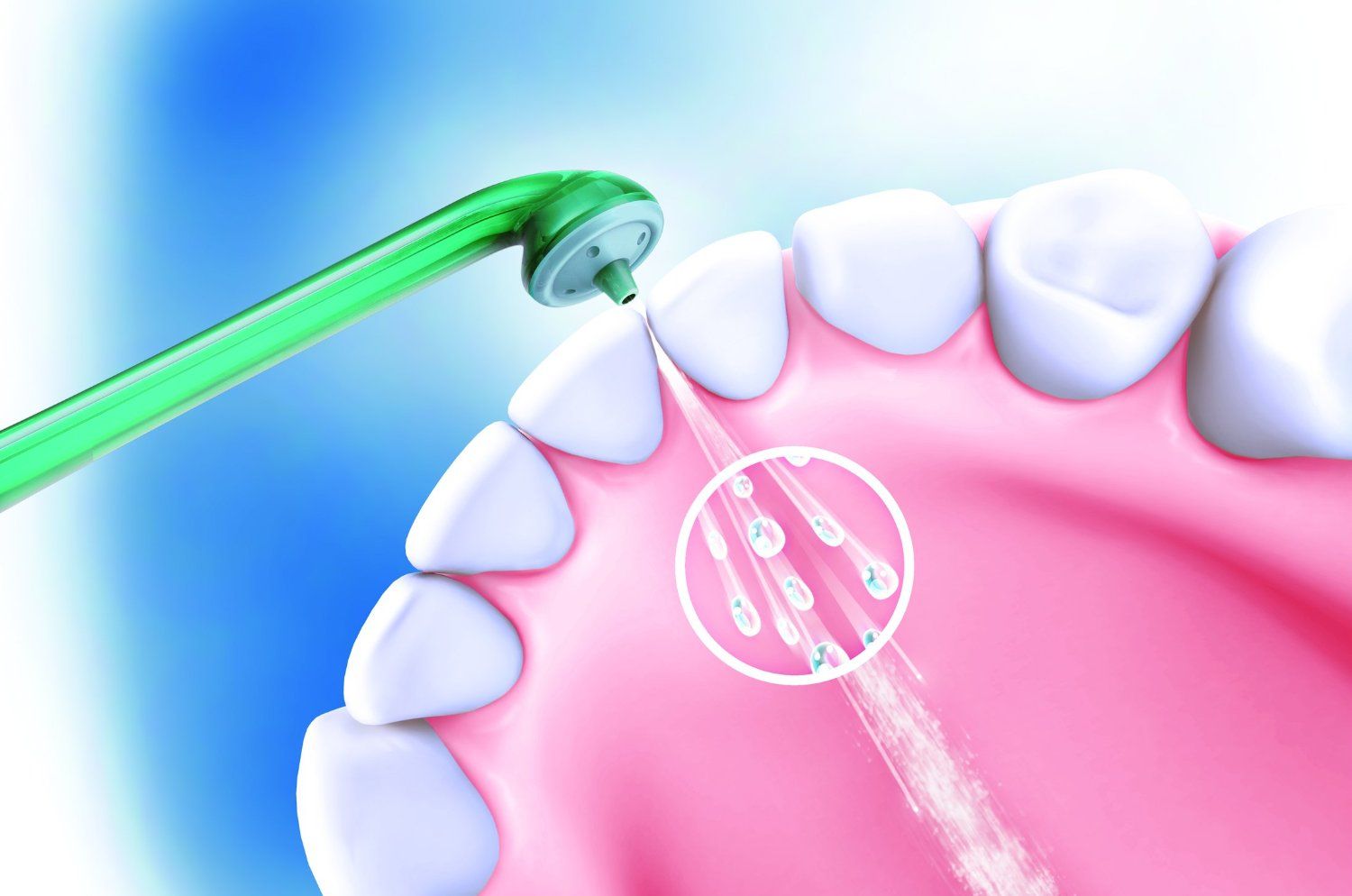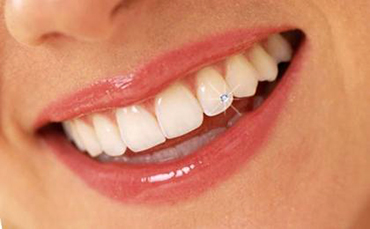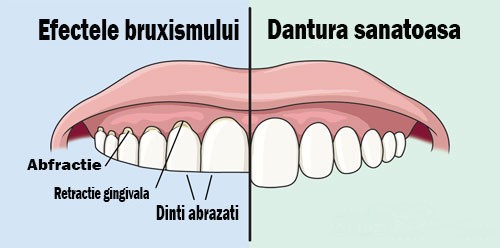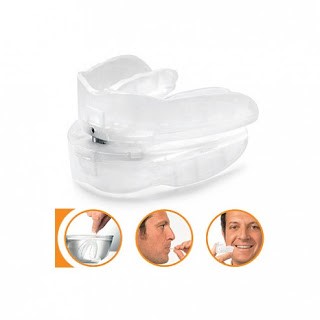
It's very important for each patient before getting treatment with implants to know very clearly what it's to be followed the post-operatively to provide implants a longer lifespan!
Implants require a thorough daily care, care-giving entirely similar to natural teeth.
The most important area in maintaining the integrity of an implant is the portion where the gum meets the titanium implant and forms a "biological seal" with the role to protect the dental implant integrated into the bone from the aggression of the microbes present in oral environment.
What happens if you accumulate food and germs (briefly, plaque) around the implants and prosthetics work?
o your gums will redden, be inflamed and you will feel tension, even pain.
o the biological space with the protective role will be destroyed and microbes in the mouth will penetrate towards the bone that supports the implant. This will cause bone resorption around the implant and in time they will be lost!
o lack of proper decontamination, food debris and, ultimately, the bacterial plaque will lead to mouth odor (so called halitosis)
To ensure a higher life span of your implants, you have to follow just 2 vitally important things:
o hygiene has to be worth the money
o periodic inspection twice a year from your dentist
How to maintain implants and prosthetic work clean?
You have to follow 3 simple steps:
1. Brushing
2. The use of dental floss.
3. Rinsing
Everything is very simple!
1. Brush your teeth implants
o It is recommended to clean the implants after each meal or at least twice a day - morning and evening. Brushing is done same as your natural teeth on both the vestibular (to the cheek) and palatal/lingual side of the teeth. (toward the palate or tongue)
o For implants cleaning are recommended brushes with medium bristles
o Interdental brushes or those with conical peak (end-tufted) are also very useful.
o In case you use an electric toothbrush, brushing must be done with great care so as not to hurt the gums (read electrical toothbrush instructions)
o Dental brushing will be done without rushing. Take your time with each side of the teeth, until you form a well-established habit (i. e. go clockwise, starting with the lower left teeth)
o You can use any toothpaste for brushing (an abrasive toothpaste that could scratch the implants is not recommended).
o It's very important not to forget to brush your tongue, gums and cheeks-this will help you maintain fresh breath.
2. The use of dental floss
There are several types of dental floss: thin, thick, with or without wax. Dental floss with wax glides better over teeth surfaces. Also there is dental floss impregnated with mint or fluoride. Dental floss is designed to gain access to the areas which a toothbrush cannot clean. We recommend a pure silk floss.
3. Rinsing
Rinsing with mouthwash is recommended for one minute twice a day (morning and evening). After rinsing for 30 minutes don't consume food and drink liquids. Mouthwash rinsing is done after brushing and dental floss cleaning and this method does not replace the latter procedures. Mouthwash will help you refresh your breath and remove food debris and bacteria from hard to reach areas.
Why periodic checkups are necessary?
Regular meetings with your dentist is necessary because he will check if:
o You keep the implants and prosthetic works clean;
o Gums and bones are healthy;
o Prosthetic works are properly adjusted.
Visit your dentist every 6 months or even more frequently, depending on your individual needs.
Very important:
Long-term success of implants and prosthetic work depends on:
o Maintained oral hygiene;
o A lifetime commitment to maintenance;
o Your cooperation.
If food and germs are retained around the implants and prosthesis:
o Your gums will redden, swell and you will feel tension. This will cause bone resorption around implants and in time you will lose one or several implants.
o Food debris can also cause bad breath (halitosis).




